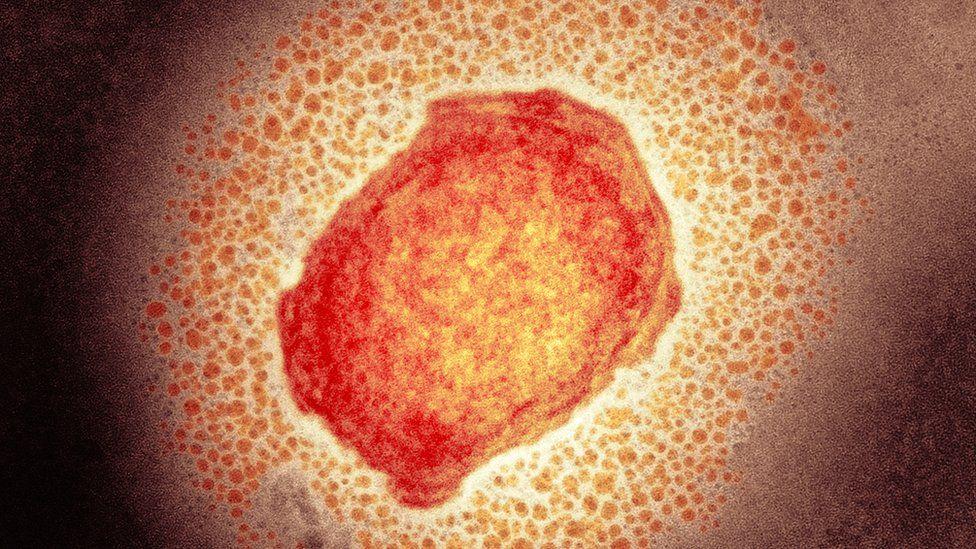Monkeypox: Doctors concerned over impact on sexual health
Monkeypox could have a “massive impact” on access to sexual health services, doctors have warned.
Staff at clinics are already having to isolate if they have come into contact with anyone infected.
In London, where most of the UK’s 20 identified cases have been detected, sexual health clinics have stopped people walking in altogether.
The British Association for Sexual Health and HIV said it was concerned about the effect on other infections.
Cases of monkeypox, which is generally mild, are rare outside Central and West Africa, but about 80 cases have been confirmed in at least 12 countries, the World Health Organization says.
Infections were confirmed in Italy, Sweden, Spain, Portugal, the US and Canada, as well as the UK – where the first European case was reported.
The WHO says another 50 suspected cases are being investigated.
Monkeypox can be spread when someone is in close contact with an infected person. The virus can enter the body through broken skin, or through the eyes, nose or mouth.
It has not previously been described as a sexually transmitted infection, but it can be passed on by direct contact during sex.
And the most recent UK cases are in gay or bisexual men which has prompted the UK Health Security Agency to encourage men who have sex with men to be aware of any unusual rashes or lesions.
They are being asked to contact their local sexual health service if they have concerns.
‘Staff have to isolate’
Dr Claire Dewsnap, a consultant in genitourinary medicine and president of the British Association for Sexual Health and HIV, said staff in sexual health clinics were “already under significant pressure” and monkeypox was making that situation worse.
“It is already stretching the workforce and will have a massive impact if staff have to isolate if they are in close contact with someone who’s infected,” Dr Dewsnap said.
“I am concerned about the potential impact on access to sexual health generally.”
In London, clinics are asking all patients to contact staff in advance and tell them their symptoms before being offered an appointment.
This is so those with monkeypox symptoms can be kept away from waiting rooms or clinics where other people are present.
Clinics elsewhere are asking only those with an unusual rash to call ahead so they can be seen in separate areas.
Some staff in sexual health clinics have already received a smallpox vaccine to help protect them against monkeypox – a smallpox jab offers some good protection since the two viruses are quite similar.
Source: BBC News

